Teamwork is the key to a good election
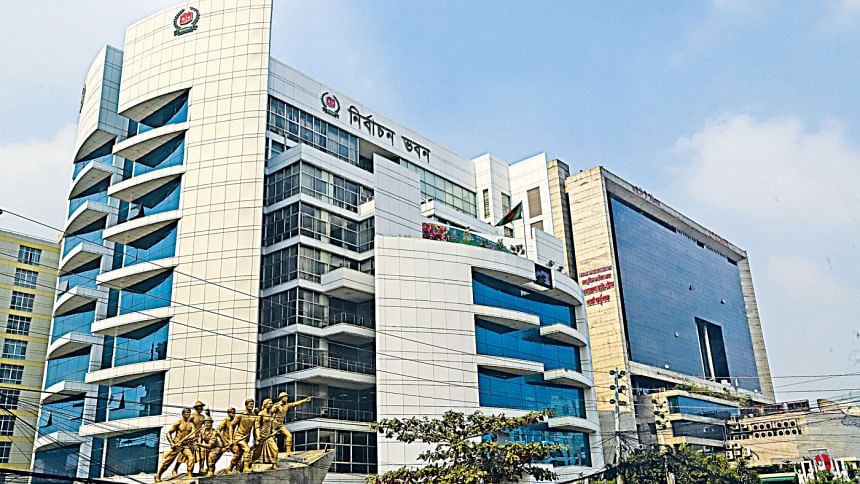
In a contemporary election system, the Election Commission (EC) serves a pivotal role beyond simply organising elections; it operates within a complex network of stakeholders – the judiciary, political parties, law enforcement agencies, government administrative and legislative bodies, voters, media, and society at large. The collective involvement of these entities is essential for the successful execution of a large-scale national election by the EC.
However, this is the prerequisite amid a political culture that has yet to mature in our country. Political parties and most of the candidates want to win the election by any means – even if they don't have adequate support from the voters – because defeat means not having access to favours of all kinds. Over the past several years, this seems to have become an established fact. Thus, almost all elections under a political government have been marred with electoral corruption in the country to various extents.
We have had 11 parliamentary elections in Bangladesh, only four of which have been standard and participatory as they have been held under neutral, non-political, caretaker governments. These elections were fair to a great extent and were internationally acclaimed and accepted. The rest of the elections, which were held under political governments, have been controversial, as the ruling parties did not want to part with state power. To bring results in their favour, ruling parties politicised the election machineries, particularly at the grassroots levels.
The 2014 election was marred with large-scale violence, and 153 out of 300 constituencies were uncontested. And in 2018, there were allegations of various foul play that included vote-casting in some places the night before the election day. Yet, the EC at that time did not take any notice when these allegations were raised, and even covered by foreign media.
This is why the role of stakeholders is crucial to ensure a free and fair election. Among them, the judiciary arguably plays the biggest role. As the custodian of the constitution, it ensures that the EC functions following the enshrined principles, and that there is effective support from the administration and executive bodies. In unlikely circumstances, the judiciary is authorised to intervene and resolve any dispute to ensure a smooth electoral process. Law enforcement agencies, which are under the judiciary, are also crucial to ensure a democratic election due to significant security concerns in our country in such times.
Additionally, if the media does not help the EC with proper and accurate information during and after the election, it becomes very difficult for the commission, as it considers the media its eyes and ears. Sadly, the country's media has failed to shed light on the true scenario in the past two elections, as most of them belong to politically aligned owners.
Moving on to the EC's responsibilities and plaguing issues, the commission has to provide guidelines and ensure protection and monitoring for the parties; it is supposed to function independently under the constitution. Our ECs, unfortunately, cannot function properly due to selecting the wrong people for the job and lack of help from other stakeholders.
Appointed members of the EC cannot be dismissed as they are not the government's people, and according to Article 126 of the constitution, the government has to abide by the EC's instructions. Although the commission holds much power, it cannot function well on the field level unless this power is applied properly.
Recently, there have been many discussions regarding the United States' visa policy, as four categories of people are being sanctioned under it: judiciary, law enforcers, media and political parties. As per the US observation, some of the individuals have not assisted the EC from 2014 to 2018 in fulfilling its duties.
Even though the EC does its best to conduct the national election as smoothly as possible, one notable bad experience was the first city corporation election of Narayanganj in 2011, where we faced many difficulties on the ground as well as from the administration. The EC asked for army deployment, which was denied in spite of the constitutional guarantee. This led to numerous questions among legal experts in the country and even the voters. It was because of the pressure from the candidates and voters that the EC did not cancel the local body election. However, it remained as a bad precedent for both the government and the EC.
Having had two elections that were not wholly recognised by the international community and the people of the country at large, the opposition parties and their supporters have lost faith in the process. How the present EC conducts an election, in the absence of a major party and its allies, needs to be seen. But without its participation and that of their supporters, elections cannot be said to have been participatory. It would end up being another "flawed" election that people of Bangladesh do not deserve.
Brig Gen (retd) Dr M Sakhawat Hussain is the former election commissioner of Bangladesh and senior fellow at the South Asian Institute of Policy and Governance (SIPG), North South University.

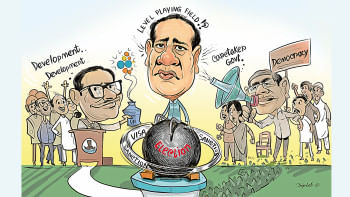
 For all latest news, follow The Daily Star's Google News channel.
For all latest news, follow The Daily Star's Google News channel. 
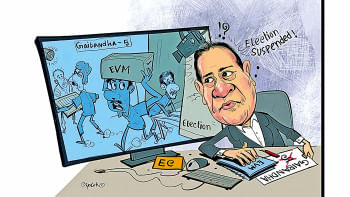
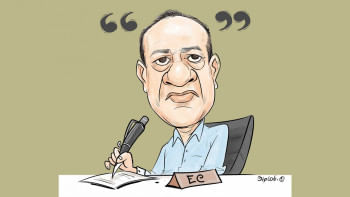
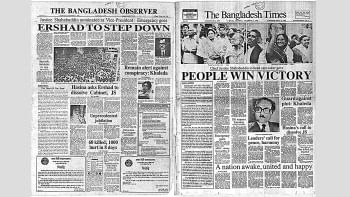
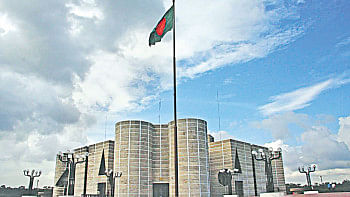









Comments